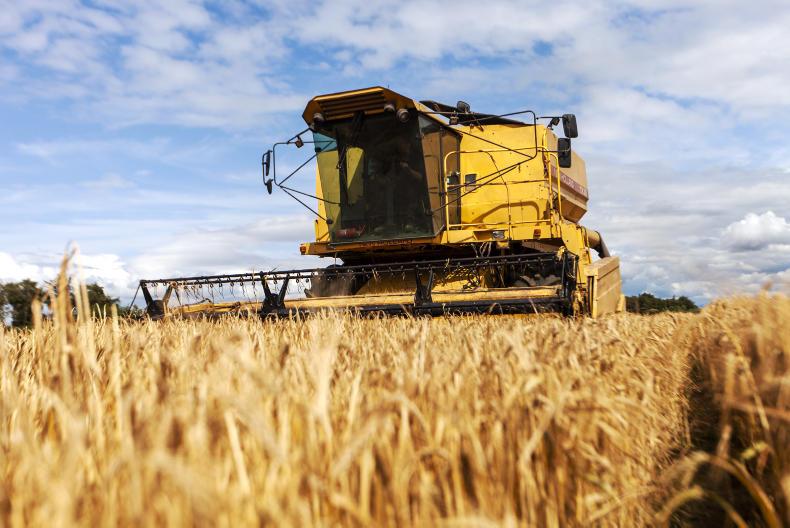The winter barley harvest is around 80% complete nationwide, with many growers anticipating to be finished by the end of the week.
The cutting of 80,000ha of winter barley went relatively smoothly, with many areas getting a good run due to the weather.
Gathering straw has proven to be more of a challenge this year however, with straw still on the ground in many areas due to limited drying opportunities.
Yields have been very variable this year so estimating an average yield can be difficult. However from conversations with growers, merchants and advisors around the country, 3.7-3.75t/ac seems to be the running average.
In general, crops appear to be performing slightly better in the southern half of the country, with many growers reporting averages of 4t/ac. A number of individual fields are achieving over 5t/ac.
All areas appear to have suffered from barley yellow dwarf virus (BYDV) to varying degrees. The worst affected crops have yielded in the region of 2-2.5t/ac and were among the first cut.
Specific weights in general appear to be in the mid-60s, although many growers are also reporting averages of between 60-62KPH. Grain moistures are good however, with readings of between 15%-18% common.
There were some reported issues with blank pods due to suspected frost damage, but this didn’t impact yields significantly.
Harvesting of winter oats has commenced, with a small area cut. Initial reports suggest that quality is reasonable, as are yields.
The first of the winter oilseed rape and winter wheat crops are also harvested but it is too early to get an indication of yield.
There is also a large amount of lodging in crops around the country after heavy rain showers. This could yet prove problematic for grain and straw yields.
Read more
Watch: harvesting winter barley on the foot of Burt castle in Donegal
Listen: impact of GM crops on Canadian agriculture
The winter barley harvest is around 80% complete nationwide, with many growers anticipating to be finished by the end of the week.
The cutting of 80,000ha of winter barley went relatively smoothly, with many areas getting a good run due to the weather.
Gathering straw has proven to be more of a challenge this year however, with straw still on the ground in many areas due to limited drying opportunities.
Yields have been very variable this year so estimating an average yield can be difficult. However from conversations with growers, merchants and advisors around the country, 3.7-3.75t/ac seems to be the running average.
In general, crops appear to be performing slightly better in the southern half of the country, with many growers reporting averages of 4t/ac. A number of individual fields are achieving over 5t/ac.
All areas appear to have suffered from barley yellow dwarf virus (BYDV) to varying degrees. The worst affected crops have yielded in the region of 2-2.5t/ac and were among the first cut.
Specific weights in general appear to be in the mid-60s, although many growers are also reporting averages of between 60-62KPH. Grain moistures are good however, with readings of between 15%-18% common.
There were some reported issues with blank pods due to suspected frost damage, but this didn’t impact yields significantly.
Harvesting of winter oats has commenced, with a small area cut. Initial reports suggest that quality is reasonable, as are yields.
The first of the winter oilseed rape and winter wheat crops are also harvested but it is too early to get an indication of yield.
There is also a large amount of lodging in crops around the country after heavy rain showers. This could yet prove problematic for grain and straw yields.
Read more
Watch: harvesting winter barley on the foot of Burt castle in Donegal
Listen: impact of GM crops on Canadian agriculture






 This is a subscriber-only article
This is a subscriber-only article










SHARING OPTIONS: